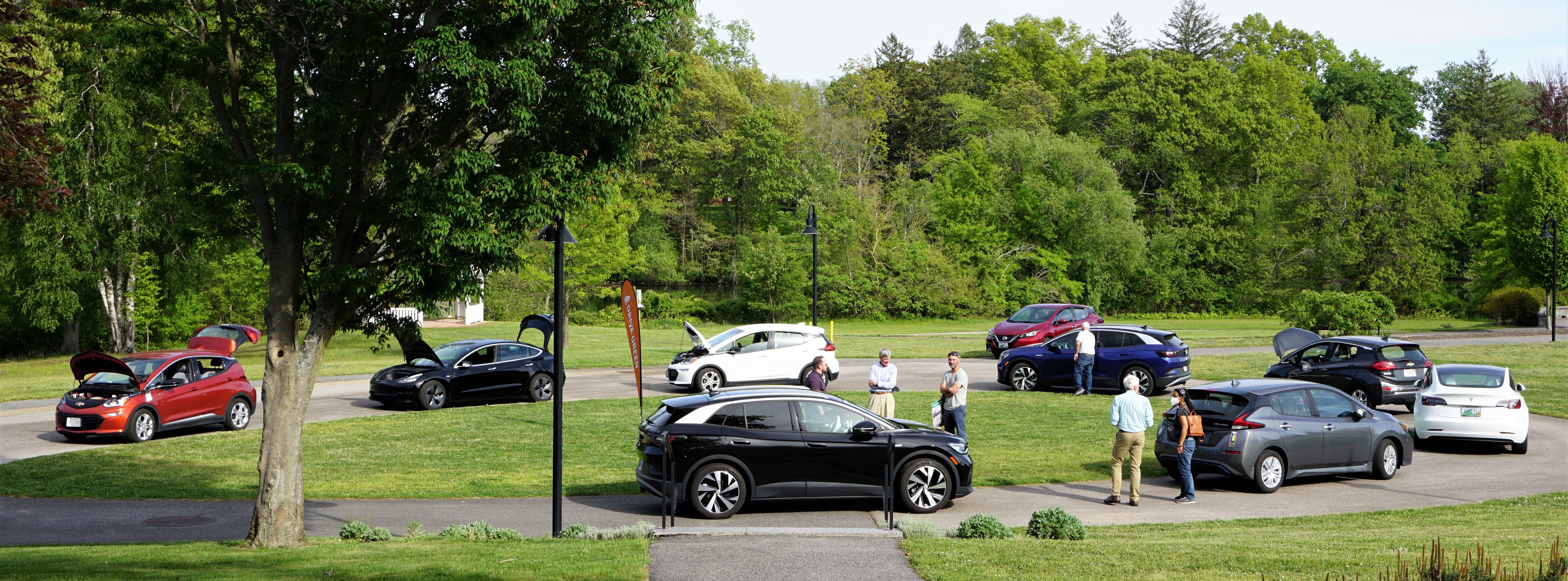What's Up With the Massachusetts Electric Vehicle Rebate?
Massachusetts’ rebate program for electric vehicles, MOR-EV, has been critical to the growth of electric vehicle...
Update from July 2023: We do not have a firm date by when to expect many of the changes described in this blog. The MOR-EV website says: “Rebates for eligible plug-in hybrid electric vehicles (PHEVs) will be phasing out of the MOR-EV program. Eligible PHEVs purchased or leased on or before June 30, 2023 will have 90 days from the purchase or lease date to submit their application for a $1,500 rebate. PHEVs purchased or leased after this date will not be eligible for a MOR-EV rebate. Stay tuned for additional information about expanded MOR-EV programs to be launched during the summer of 2023.”
We will keep this blog updated as we learn more!
Last year, Massachusetts passed a monumental climate law, An Act Driving Clean Energy & Offshore Wind. Among very many other things, the climate law called for significant changes to the state rebate program for electric vehicles, MOR-EV. Though some of those changes have been implemented, others have been on hold since the bill passed. Now we have learned that several more will come into effect on July 1. Here are the details.
Right now, if you are a Massachusetts resident and purchase or lease an electric vehicle (EV) and register it in Massachusetts, you qualify for a state MOR-EV rebate – as long as your purchase meets certain eligibility requirements:
To get the rebate, you must apply online within three months of acquiring the vehicle. Vehicles purchased outside of Massachusetts are eligible as long as they are registered in Massachusetts within 90 days of purchase. Once you apply, the MOR-EV program checks your eligibility and sends you a check in the mail.
The 2022 climate law called for several adjustments to MOR-EV. The Department of Energy Resources (DOER) last year issued a Request for Proposals for a vendor to administer the MOR-EV program in its new form. DOER has chosen a vendor and work has started. At the March 28 meeting of the Zero Emission Vehicle (ZEV) Commission, we learned that DOER anticipates the following changes to take effect starting July 1, 2023:
 A point-of-sale offering: At select dealerships, drivers will be able to apply the MOR-EV rebate at the point of sale, reducing upfront costs without having to apply online and wait for a check in the mail. This should make EVs more accessible to people who can’t afford to pay several thousand dollars and wait a couple of months to get reimbursed.
A point-of-sale offering: At select dealerships, drivers will be able to apply the MOR-EV rebate at the point of sale, reducing upfront costs without having to apply online and wait for a check in the mail. This should make EVs more accessible to people who can’t afford to pay several thousand dollars and wait a couple of months to get reimbursed.
Last year’s climate law also included a provision for another adder – this time, a $1,000 adder for people who are “trading in a vehicle with market value that has an internal combustion engine that is not an electric vehicle.” The law was scant on details though: does it mean “trading in” to the dealership? Or trading in to the state? It’s unclear. DOER, at that same ZEV Commission meeting, indicated it will roll out these provisions later in 2023, likely in the fall.
Secondly, historically, the price cap for MOR-EV has been a final sales price cap, as opposed to a Manufacturers Suggested Retail Price (MSRP) cap, like the federal tax credit. In its late-March presentation, DOER indicated it’s considering switching to an MSRP price cap, likely in an effort to mirror the federal tax credit requirements. That’s not a done deal yet though – we will keep you posted!
If you are a Massachusetts resident in the market for an EV in the next couple of months, take note! If you have your eye on a plug-in hybrid and the $1,500 rebate is important to you, make sure to get ahold of a vehicle before the end of June. Conversely, if you’re thinking about getting a used EV and don’t need a car immediately, maybe hold off until the used car rebate gets launched in July. And as always, if you need help navigating these incentives, shoot us an email at drivegreen@greenenergyconsumers.org.

You can also speak with our Drive Green team at one of our upcoming events.
Massachusetts’ rebate program for electric vehicles, MOR-EV, has been critical to the growth of electric vehicle...
The Massachusetts Offers Rebates for Electric Vehicles Program (MOR-EV Program) has increased electric vehicle...
Comments